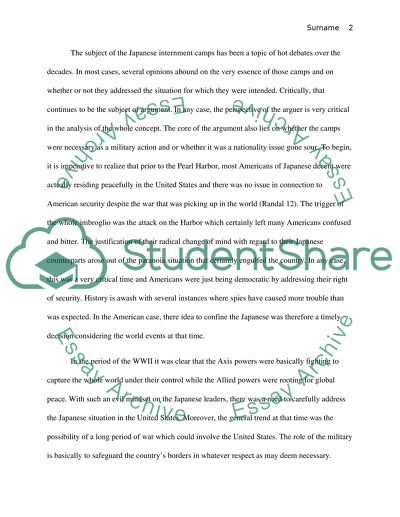Cite this document
(“Japanese Internment Camps Research Paper Example | Topics and Well Written Essays - 1750 words”, n.d.)
Retrieved de https://studentshare.org/history/1438600-argumentative-essay-on-the-japanese-internment
Retrieved de https://studentshare.org/history/1438600-argumentative-essay-on-the-japanese-internment
(Japanese Internment Camps Research Paper Example | Topics and Well Written Essays - 1750 Words)
https://studentshare.org/history/1438600-argumentative-essay-on-the-japanese-internment.
https://studentshare.org/history/1438600-argumentative-essay-on-the-japanese-internment.
“Japanese Internment Camps Research Paper Example | Topics and Well Written Essays - 1750 Words”, n.d. https://studentshare.org/history/1438600-argumentative-essay-on-the-japanese-internment.


